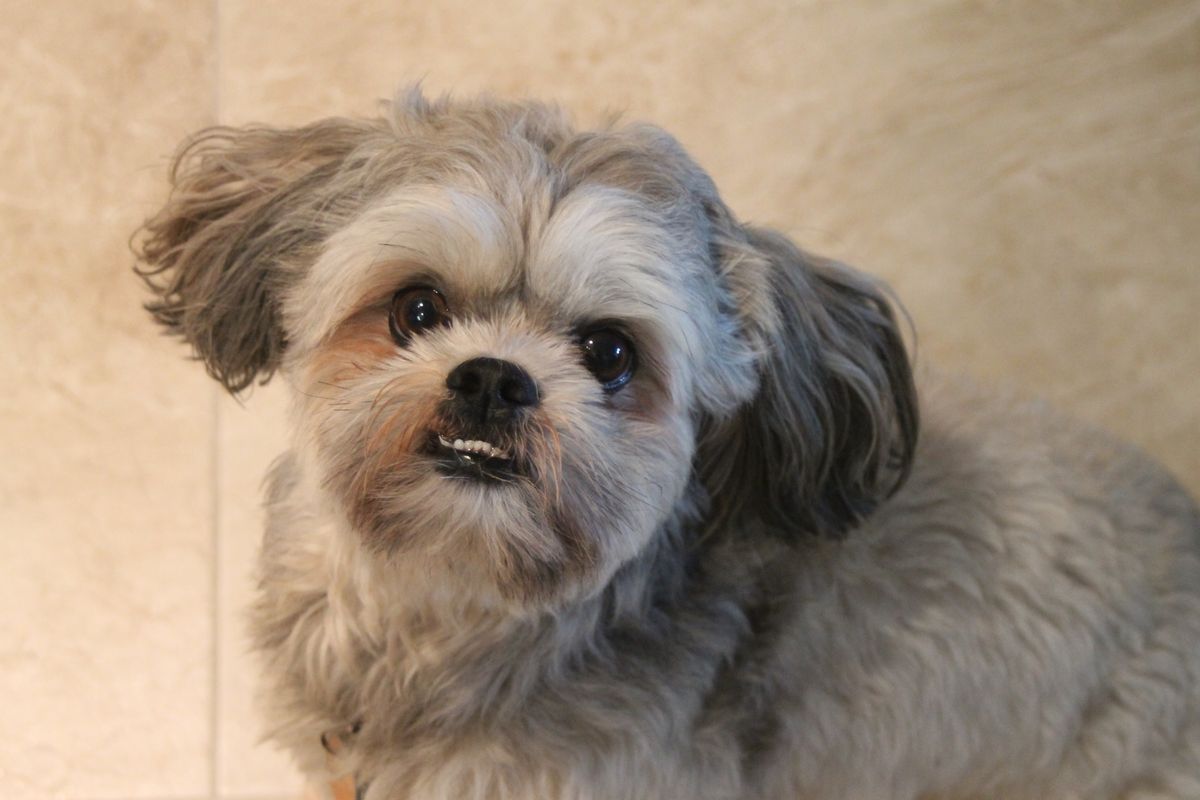Shih Tzu dental health is crucial not only for maintaining a beautiful smile but also for ensuring the overall well-being of your beloved pet. Understanding the unique dental structure of Shih Tzus, recognizing common dental issues, and implementing regular care practices can help prevent serious health problems. This article offers valuable insights and practical tips to help you maintain your Shih Tzu’s pearly whites and contribute to their longevity and quality of life.
Key Takeaways
- Shih Tzus require diligent dental care due to their susceptibility to plaque and tartar buildup, which can lead to more severe health issues if not addressed.
- Starting dental hygiene practices early in a Shih Tzu’s life can make routine brushing a more accepted and effective part of their care regimen.
- Regular brushing with the right products is essential for preventing dental diseases and ensuring fresh breath and a healthy mouth.
- Professional dental cleanings by a veterinarian are sometimes necessary to remove tartar and address dental disease, contributing to the overall health of your Shih Tzu.
- Dental health in Shih Tzus is interconnected with their organ function, and good dental hygiene can lead to long-term health benefits and a better quality of life.
Understanding Shih Tzu Dental Structure and Common Issues

The Anatomy of Shih Tzu Teeth
Shih Tzus, like all dogs, experience two sets of teeth in their lifetime: the 28 baby teeth, also known as deciduous teeth, and the 42 permanent or adult teeth. These baby teeth begin to erupt through the gums between 3 and 6 weeks of age, starting with the incisors, followed by canines and premolars. The last premolar typically appears by 8 to 12 weeks old. Since puppies don’t need to grind much food, they do not develop molars during this stage.
Shih Tzu puppies have a distinctive dental timeline, with their teeth emerging in a sequence that ensures they can transition from mother’s milk to solid food.
The adult Shih Tzu has a unique dental structure characterized by an undershot bite, where the lower jaw extends beyond the upper jaw, causing the lower teeth to sit in front of the upper teeth when the mouth is closed. This bite is a breed standard and differs from the ‘scissor bite’ seen in other breeds.
Understanding the difference between plaque and tartar is essential for maintaining dental health. Plaque is a soft, sticky film that accumulates on teeth, while tartar is plaque that has hardened on the teeth. Both can lead to significant dental issues if not addressed properly.
Common Dental Problems in Shih Tzus
Shih Tzus, like many small breeds, are susceptible to a variety of dental issues. Periodontal disease is one of the most prevalent conditions, affecting the gums and surrounding tissues of the teeth. This painful ailment can lead to infection and inflammation, significantly impacting a Shih Tzu’s quality of life.
The onset of dental problems in Shih Tzus is not age-specific, and symptoms such as bad breath can be early indicators of oral health issues.
Plaque and tartar accumulation is another common concern. While plaque is a sticky film of bacteria, tartar is the hardened deposit that forms when plaque is not removed. Both can lead to serious dental diseases if not addressed promptly. Regular dental care from puppyhood can greatly reduce the risk of these problems.
The American Veterinary Dental Society has found that by the age of three, 80% of dogs may exhibit signs of oral disease. This statistic underscores the importance of early and consistent dental hygiene to prevent damage to both teeth and vital organs.
Signs of Dental Disease
Recognizing the signs of dental disease in Shih Tzus is crucial for preventing progression and ensuring the health of your furry friend. Bad breath is often the first noticeable symptom and is almost always indicative of an underlying issue. Other signs include:
- Excessive drooling
- Inflamed gums
- Tumors in the gums
- Cysts under the tongue
- Loose teeth
Dental disease doesn’t just affect the mouth; it can have systemic implications, impacting vital organs and overall health. The American Veterinary Dental Society reports that 80 percent of dogs show signs of oral disease by age three, making early detection and intervention essential.
Gingivitis, characterized by swollen, bleeding gums, is a common condition that can lead to periodontitis if not addressed. While gingivitis is reversible with proper care, periodontitis can cause irreversible damage. Monitoring your Shih Tzu for these signs and maintaining good oral hygiene can help avoid costly dental bills and safeguard your pet’s health.
Essential Dental Care Practices for Shih Tzus

The Importance of Regular Brushing
Maintaining the dental health of your Shih Tzu requires a commitment to regular brushing. This practice is essential in preventing the buildup of plaque and tartar, which can lead to more serious dental issues. Brushing their teeth several times a week is not just about keeping bad breath at bay; it’s a crucial component of their overall health care.
When selecting the right tools for brushing, consider a dog-specific toothbrush or a rubber finger brush for ease and comfort. A piece of gauze or a dental wipe can also be effective alternatives. Remember, the goal is to make the experience as positive as possible for your furry friend.
It’s important to note that while dental rinses can be a helpful addition, they should not replace the act of brushing. For those Shih Tzus that are less cooperative, using a plaque scraper with care can be an alternative method to maintain oral hygiene. However, if your dog is uncomfortable with this process, it’s best to consult your veterinarian for guidance and assistance.
Choosing the Right Dental Care Products
Selecting the appropriate dental care products is crucial for maintaining your Shih Tzu’s oral health. A good canine toothbrush and toothpaste are essential. Beyond these basics, consider adding a dental spray or gel to your toolkit for extra protection against plaque and tartar buildup.
- Toothbrush: Look for a brush with soft bristles designed for dogs. A finger brush can also be a gentle alternative for dogs who dislike traditional brushes.
- Toothpaste: Canine toothpaste comes in various flavors to entice your Shih Tzu. Never use human toothpaste, as it can be harmful to dogs.
- Dental Chews: Products like GREENIES can help reduce tartar and freshen breath. They should be used in conjunction with brushing, not as a replacement.
- Tartar Remover: For more hands-on care, a tartar remover or scraper can be used to manually clean your dog’s teeth, if they are cooperative.
While dental care might not be the most exciting task, your diligence can lead to a longer, healthier life for your Shih Tzu. Regular use of the right products will keep their teeth clean and breath fresh.
Remember to consult with your veterinarian or refer to trusted sources such as the article titled “The 11 Best Dog Toothpastes of 2024, Tested and Reviewed” for recommendations on the best products for your pet’s dental care.
Training Your Shih Tzu for Dental Hygiene
Training your Shih Tzu to accept daily dental care is crucial for their long-term health. Start the training process as early as possible, ideally when they are still a puppy. Familiarize them with the sensation of having their teeth and gums touched by gently rubbing their mouth with your finger. Gradually introduce a toothbrush designed for dogs, and use canine-friendly toothpaste.
Consistency is key in training. Establish a routine and stick to it, making dental care a part of your Shih Tzu’s daily life.
Use positive reinforcement to make the experience enjoyable. Reward your Shih Tzu with praise, petting, or a favorite treat after each successful brushing session. If your Shih Tzu is resistant, be patient and never force the process. Instead, slowly build up their tolerance and comfort level.
Here are some steps to help you train your Shih Tzu for dental hygiene:
- Begin by touching the mouth and teeth without a brush.
- Introduce a dog toothbrush with a small amount of toothpaste.
- Brush only a few teeth at first, gradually increasing the number each day.
- End each session on a positive note with a reward.
- Keep them by your side when possible, using a harness if needed.
- Use a playpen for supervision when direct attention is not possible.
Professional Dental Treatments for Shih Tzus
When to Seek Veterinary Dental Care
Recognizing the right time to seek professional dental care for your Shih Tzu is crucial for maintaining their oral health. If your Shih Tzu exhibits bad breath, it’s often an early indicator of dental issues and should prompt a visit to the veterinarian. Other signs that warrant professional attention include visible tartar buildup, reluctance to eat, or any signs of discomfort while chewing.
While some dental problems may be apparent, others require a veterinarian’s expertise to diagnose and treat effectively.
Veterinary dental care goes beyond what we can provide at home. Anesthesia is necessary for a thorough examination and cleaning, as dogs cannot communicate their pain nor cooperate like human patients. Dental X-rays, scaling, and polishing are performed under careful monitoring to ensure your pet’s safety and comfort.
It’s important to note that dental issues can arise at any age. The American Veterinary Dental Society reports that a staggering 80 percent of dogs show signs of oral disease by age three. Regular check-ups can help catch problems early, potentially saving your Shih Tzu from more serious complications that can affect their overall health.
Understanding Professional Cleaning Procedures
Professional dental cleanings are a critical component of your Shih Tzu’s dental care regimen. These cleanings go beyond what can be achieved at home, targeting tartar and plaque buildup that regular brushing can’t handle. During a professional cleaning, your veterinarian will perform a thorough examination of your Shih Tzu’s mouth, followed by the removal of any tartar and plaque.
The procedure typically involves scaling to remove tartar above and below the gum line, and polishing to smooth the tooth surface. This helps to prevent further plaque buildup.
After the cleaning, your vet may apply fluoride or a dental sealant to strengthen and protect the teeth. It’s important to note that professional cleanings require your Shih Tzu to be under anesthesia. This ensures their comfort and safety during the procedure. Post-cleaning, your vet will provide specific instructions for home care to maintain the dental health achieved in the clinic.
- Pre-cleaning examination
- Scaling and tartar removal
- Polishing
- Fluoride or sealant application
- Anesthesia for safety and comfort
Remember, while professional cleanings are essential, they are most effective when combined with regular home care and preventative measures.
Post-Cleaning Care and Monitoring
After your Shih Tzu has undergone a professional dental cleaning, it’s crucial to ensure proper post-cleaning care to maintain dental health and prevent future issues. Follow your veterinarian’s instructions closely, as they will provide specific guidance tailored to your dog’s needs. Monitoring your Shih Tzu’s behavior and oral health in the days following the procedure is essential. Look for signs of discomfort or changes in eating habits, which could indicate a problem.
- Ensure your Shih Tzu has a quiet place to recover
- Offer soft food if recommended by the vet
- Check the mouth daily for any signs of redness, swelling, or bleeding
- Gradually reintroduce regular activities as your pet recovers
It’s important to continue with regular dental care practices, such as daily brushing, to support the long-term health of your Shih Tzu’s teeth and gums. Remember, prevention is always better than cure, and maintaining a routine will help avoid the need for future professional cleanings.
Home Remedies and Preventative Measures

Daily Brushing Techniques
Maintaining the dental health of your Shih Tzu begins with daily brushing techniques that are both effective and safe. Start by selecting the right tools for the job: a canine toothbrush with soft bristles or a rubber finger brush, and canine toothpaste. Human toothpaste is not suitable for dogs due to ingredients that can be harmful if swallowed.
- Gently open their mouth by carefully lifting your dog’s lips to expose their teeth and gums.
- Begin with the front teeth, which are easier to reach, and move towards the back of the mouth.
- Use circular motions to brush each tooth, ensuring that you also gently massage the gum line to remove plaque.
It’s important to be patient and consistent with your Shih Tzu’s dental care routine. Training them to accept brushing as a regular part of their day can prevent many common dental issues.
If your Shih Tzu is resistant to a toothbrush, consider alternatives such as dental wipes or a plaque scraper. However, be cautious with scrapers as they can be sharp and may cause injury if the dog is uncooperative. Always prioritize your pet’s comfort and safety during dental care sessions.
Diet and Chew Toys for Dental Health
A balanced diet and the right chew toys can significantly contribute to your Shih Tzu’s dental health. Chew toys are not just for fun; they play a crucial role in maintaining dental hygiene. They can massage the teeth and gums, helping to remove tartar and plaque. For instance, toys like the Nylabone Dental Dinosaur Chew are designed to clean teeth while providing entertainment.
Chew bones and edible dental chews are also beneficial. They are often gluten-free and without preservatives, making them safe for digestion while freshening breath. Brands like Greenies are popular choices among Shih Tzu owners.
It’s important to select toys that cater to the specific needs of your Shih Tzu. According to AllShihTzu, the best toys address needs such as teething, boredom, and treat release. Here’s a list of some recommended toys and their purposes:
- Nylabone Durable Dental Dinosaur Chew Toy: For teething and dental cleaning
- Petstages Dental Chew Pack: Offers a variety of textures for dental health
- Joy Pet Double Headed Tartar Remover/Scraper: For more hands-on dental care
- Nylabone Advanced Oral Liquid Tartar Remover: A supplement for dental hygiene
Remember, while toys and diet play a significant role, they should complement regular brushing and professional dental care for optimal dental health.
Spotting and Addressing Early Signs of Trouble
Early detection of dental issues in Shih Tzus can save you from costly veterinary bills and ensure your pet maintains a healthy mouth. Bad breath is often the first indicator of a problem and should not be ignored as it can signal underlying issues. Regular inspection of your Shih Tzu’s mouth is crucial for spotting early signs of trouble.
Be vigilant for symptoms such as:
- Redness and/or bleeding of the gums
- Excessive drooling
- Inflamed gums
- Tumors in the gums
- Cysts under the tongue
- Loose teeth
If you notice any of these symptoms, it’s important to take action immediately. Begin by improving your Shih Tzu’s dental care routine at home and consult your veterinarian for advice. They may recommend a professional cleaning or other treatments to address the issue.
Remember, prevention is key. Establishing a consistent dental hygiene routine can help prevent many common dental problems before they start.
The Impact of Dental Health on Overall Well-being

The Connection Between Dental Health and Organ Function
The health of a Shih Tzu’s teeth extends far beyond the mouth. Bacteria from inflamed oral areas can enter the bloodstream and affect major body organs, leading to systemic health issues. The liver, kidneys, heart, and lungs are the most commonly affected organs, which underscores the importance of maintaining good dental hygiene.
Antibiotics are often administered before and after dental cleaning procedures to prevent the spread of bacteria through the bloodstream, highlighting the potential severity of dental diseases.
Poor dental hygiene can have a profound impact on your Shih Tzu’s overall health. By the age of three, many dogs exhibit signs of oral disease, which can lead to damage to the teeth and vital organs if not addressed promptly. Regular dental care is essential not only for preserving your pet’s pearly whites but also for safeguarding their systemic health.
Long-term Benefits of Good Dental Hygiene
Maintaining good dental hygiene in Shih Tzus is not just about keeping their teeth clean; it’s about ensuring their overall health and well-being. Proper dental care can significantly enhance the quality of life for your furry companion by preventing a myriad of health issues.
- Prevents Gum Disease and Tooth Decay: Regular cleaning helps to keep periodontal diseases at bay, which are common in small breeds like Shih Tzus.
- Fights Bad Breath: A clean mouth means less odor-causing bacteria, leading to fresher breath.
- Detects Problems Early: Routine dental check-ups can help spot issues before they become serious.
- Improves Overall Health: Good oral hygiene is linked to better organ function, reducing the risk of bacteria spreading from the mouth to other parts of the body.
- Enhances Quality of Life: A pain-free mouth allows your Shih Tzu to eat and play without discomfort.
By investing in your Shih Tzu’s dental health, you’re not only safeguarding their smile but also their heart, kidneys, and liver from potential harm caused by oral bacteria. This proactive approach can lead to fewer health complications and a happier, healthier pet in the long run.
Creating a Comprehensive Dental Care Routine
Establishing a comprehensive dental care routine for your Shih Tzu is essential for maintaining their overall health and happiness. A daily regimen that includes brushing, diet, and regular check-ups can significantly reduce the risk of dental diseases. Begin with selecting the right tools; a canine toothbrush and toothpaste are fundamental. For those Shih Tzus that are less cooperative with traditional brushes, consider a softer approach.
Try a dog toothbrush with soft bristles or a silicone brush that fits over your finger. These finger brushes help you avoid pressing too hard while cleaning and can make the experience more pleasant for your pet.
In addition to brushing, incorporate dental chews and toys that promote oral health. These items can help scrape away plaque and tartar build-up, complementing your brushing efforts. Remember, while home care is crucial, it should not replace professional cleanings. Schedule regular dental check-ups with your vet to catch any issues early on and to ensure a thorough cleaning when necessary.
Conclusion
Maintaining the dental health of your Shih Tzu is crucial for their overall well-being. As we’ve explored, proper dental care can prevent a host of issues, from bad breath to serious organ problems. Starting early with good dental habits, such as regular brushing and professional check-ups, can ensure your Shih Tzu’s teeth remain healthy throughout their life. Remember, while some dental problems can be unique and unexpected, consistent care is key. By following the tips and insights provided in this article, you can help your furry friend maintain a pearly white smile and enjoy a happy, healthy life.
Frequently Asked Questions
What are common dental problems in Shih Tzus?
Shih Tzus can suffer from plaque and tartar buildup, bad breath, gum disease, and tooth decay. Early signs of dental disease include bad breath, which is often the first noticeable symptom.
At what age should I start worrying about my Shih Tzu’s dental health?
Dental health should be a concern from the start. The American Veterinary Dental Society reports that 80% of dogs show signs of oral disease by age three, so it’s important to begin dental care early.
How often should I brush my Shih Tzu’s teeth?
Daily brushing is the best way to maintain your Shih Tzu’s dental health. Starting from puppyhood with proper training will help your dog get used to the routine.
What should I do if I notice tartar on my Shih Tzu’s teeth?
If you notice tartar or signs of dental disease, schedule a consultation with your veterinarian. Professional cleaning may be necessary to remove tartar and prevent further dental issues.
Can dental problems in Shih Tzus affect their overall health?
Yes, poor dental hygiene can lead to issues that affect the mouth and teeth, and can also extend to vital organs, impacting the dog’s overall health.
Are there any specific dental care products recommended for Shih Tzus?
Yes, products like double-headed tartar removers, liquid tartar removers, and dental care toys can assist in maintaining your Shih Tzu’s dental health. Always choose products suited for your dog’s size and chewing habits.




